Today, May 21, is the Global Day of Prayer to End Famine. Hungry people in East Africa are our neighbors in the eyes of God, and Jesus calls us to love them in the same way we love God and ourselves (Matthew 22:39, Mark 12:31).
Our president Rich Stearns explains how we can be in fellowship with them in their suffering.
Two years ago this month, I attended a service at All Saints Anglican Church in Juba, South Sudan. The sermon was about unity, a fitting message on the Sunday after Pentecost. The service concluded with everybody turning to their neighbors, grasping hands, locking eyes, and saying, “I promise to be in fellowship with you.”
If you’ve ever done something similar at your church, you probably felt that this is an easy pledge to make. Camaraderie comes naturally with people who are like you, living in similar circumstances here in America.
But what does it mean to be in fellowship with people in crisis, such as those facing famine?
Famine was recently declared in South Sudan, but I could see it coming two years ago. Civil conflict had displaced families and disrupted farming, leading to widespread food shortages. Acute hunger was already evident in the emaciated children I saw in nutrition centers, kept alive only by weekly therapeutic feeding.
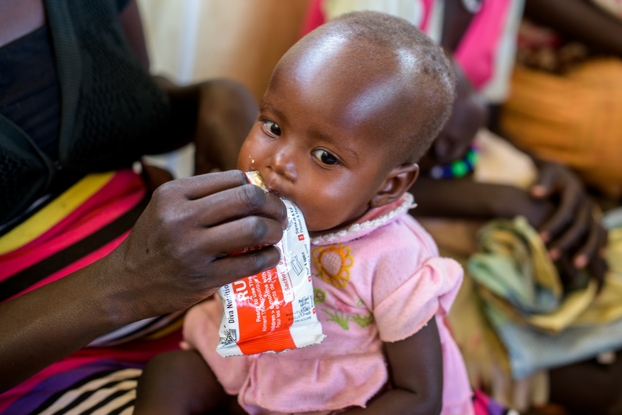
Today, the hunger crisis isn’t confined to South Sudan. Severe malnutrition afflicts several East African countries, including Kenya and Somalia, affecting 25 million people. Rural families and pastoralists — people dependent on the land and their animals for sustenance — are at greatest risk.
On the surface I have little in common with these people, but through the lens of faith, our connection is deep: They are my brothers and sisters, created as I am, in God’s image. Fellowship embraces that critical way we are alike in the eyes of God.
Though they are geographically distant from me, hungry Africans are my neighbors, those whom Jesus asks me to love in the same way I love God and myself. In Matthew 25:34-40, Jesus calls us to a radical love of neighbor:
“Then the King will say to those on his right, ‘Come, you who are blessed by my Father; take your inheritance, the kingdom prepared for you since the creation of the world. For I was hungry and you gave me something to eat, I was thirsty and you gave me something to drink, I was a stranger and you invited me in, I needed clothes and you clothed me, I was sick and you looked after me, I was in prison and you came to visit me.’
“Then the righteous will answer him, ‘Lord, when did we see you hungry and feed you, or thirsty and give you something to drink? When did we see you a stranger and invite you in, or needing clothes and clothe you? When did we see you sick or in prison and go to visit you?’
“The King will reply, ‘Truly I tell you, whatever you did for one of the least of these brothers and sisters of mine, you did for me.’”
This passage shows us the shocking depth of Jesus’ love for the human race. His identification with the “least of these” is so profound that when we reach out in love and help them in their suffering, it is actually Jesus himself we are loving.
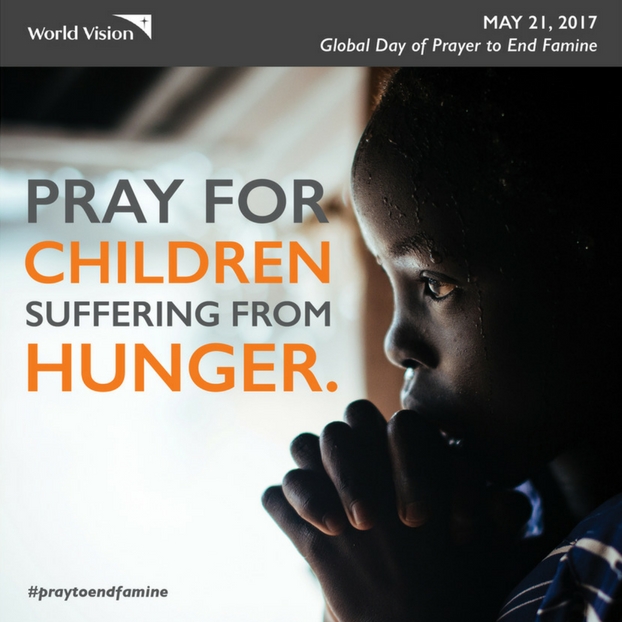
Matthew 25 makes caring for the poor and hungry a clear priority, flowing out of our love for Christ. When we identify as Jesus does with people in need, standing in solidarity with them is natural. Here’s how we can do this today for our brothers and sisters in East Africa:
Praying: Christians around the world will unite on May 21, the Global Day of Prayer to End Famine. This is a day in which the Body of Christ can lift up suffering children and families, pray for an end to hunger, hold up the humanitarian workers on the front lines, and pray that the world will take action to save lives. If you find yourself at a loss for words, here’s a beautiful prayer by Mother Teresa: “Make us worthy, Lord, to serve those people throughout the world who live and die in poverty and hunger. Give them through our hands, this day, their daily bread, and by our understanding love, give them peace and joy.”
Giving: The word “fellowship” comes from the Greek koinonia, a term used in Acts 2 to describe the early Christians’ practice of sharing what they had with others. So many of us in America have all we need to meet our families’ basic needs, with plenty left over. While every dollar we donate makes an impact for the poor in East Africa, World Vision makes it go even further, multiplying seven times to provide emergency food, clean water, and more.
Next month I’m traveling to Turkana, Kenya, to witness the drought-fueled hunger crisis there. As I look into the eyes of despairing mothers and children — my neighbors in need — I will pledge that I and other people of faith are with them in their suffering: “I promise to be in fellowship with you.”
World Vision U.S. President Rich Stearns is the author of The Hole In Our Gospel and Unfinished. Follow him at twitter.com/richstearns.
Famine. Drought. Conflict. These are the deadly forces threatening children and families throughout East Africa. You can help save lives and stop these threats from spreading further. Your gift will multiply seven times thanks to government grants. Give today.
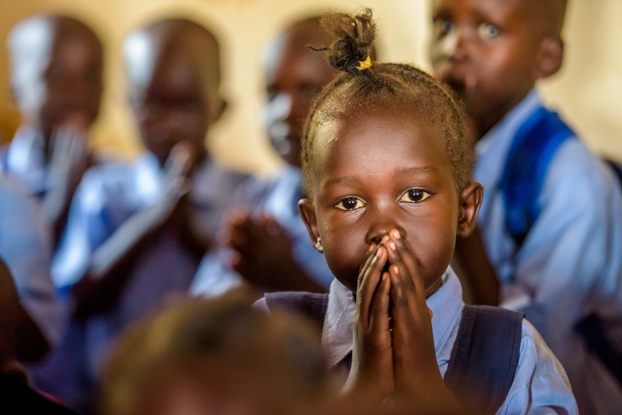
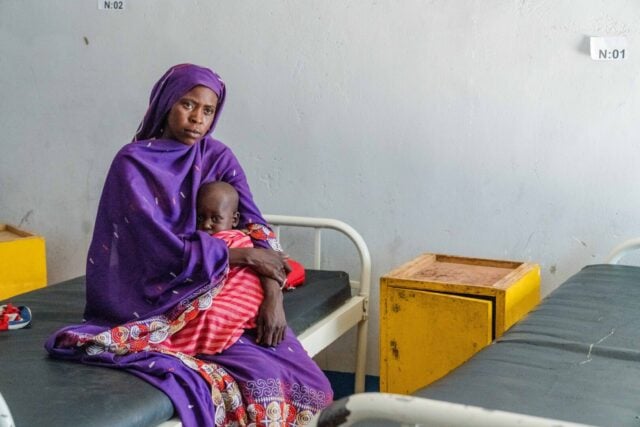
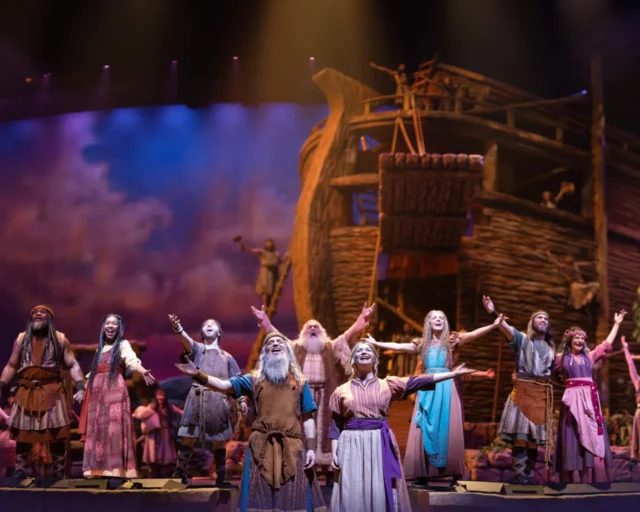

Comments